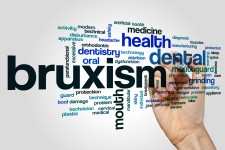
Tori are abnormal growths along the lower or upper jaw, while bruxism is grinding or clenching the teeth, usually during sleep. A connection has been noticed between the two, but does it stand up to scientific examination? Does one lead to the other?
SACRAMENTO, Calif., December 4, 2018 (Newswire.com) - A reader of the Sacramento Dentistry Group website recently asked whether there is a connection between tori and teeth grinding. Called bruxism by dentists, teeth grinding is often noticed during dental exams due to abnormal tooth wear. Tori are bony, harmless bumps that grow along the lower jaw of 1 in every 20 persons. Some individuals have both problems, prompting the question of whether there is a connection between the two. A recent international clinical review provides an answer.
A team of dentists from Brazil, Canada, and Italy combed through nearly six hundred dental experiments that studied tori and bruxism. Of these, they selected five reports that were especially pertinent. Although the strength of the evidence from these experiments was rated 'low,' they concluded that it might be possible that “the presence of abnormal tooth wear increased the odds of having tori.”
Since bruxism grinds away enamel through constant clenching of the teeth, unusual tooth wear is generally taken as a sign of this harmful habit. Most teeth grinding takes place during sleep, and therefore goes unnoticed by the patient. The unanswered question from this scientific review, however, is if tori cause the bruxism or if the bruxism causes tori.
Given the need for stronger evidence, the team encouraged further research on the subject. Bruxism can lead to early tooth loss and causes complications for patients with dental restorations, like crowns, bridges, and dental implants. But as the study reported, “bruxism diagnosis is a challenge.” The presence of tori may also be connected with temporomandibular joint (TMJ) problems. As with bruxism, however, it is unknown whether one is the chicken, and the other the egg. Therefore, the Sacramento Dentistry Group agrees with the international team’s assessment that more study on this subject would be beneficial.
To answer further questions on tori, bruxism or TMJ issues, interested persons may contact the dentists at the Sacramento Dentistry Group by calling 916-538-6900.
Source: Sacramento Dentistry Group
Share:
